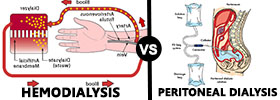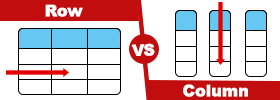Difference between Finish and Over
Key difference: The words like finish and over are generally taken into same context. Verbs like ‘to finish’ means to complete that relevant task or content, while ‘to over’ means to end up anything, or may also refer to complete fully.
Terms, finish and over are synonyms of each other, as they refer to the same meaning but differ in their usages in the sentence formation. The below article explains their forms and usages.
The word finish means to complete any respective task or work for that interval of time, then that task may be in any particular assigned amount or any such part of it. The word finish does not mean the completion of the entire thing; it refers to the accomplishment of that relevant thing or work. The verb ‘to finish’ means to end up doing any relevant task or work. More broadly, it refers to completion.
For example:
He will finish the assignment within the given time.
The above sentences, means that the given work would get completed within the assigned time.
According to Dictionary.com:
.jpg) Meaning of ‘finish’ as a verb is:
Meaning of ‘finish’ as a verb is:
- to bring (something) to an end or to completion; complete
- to come to the end of (a course, period of time, etc.)
- to use completely (often followed by up or off)
As a noun it means:
- the end or conclusion; the final part or last stage.
- the end of a hunt, race, etc.
- a decisive ending
While, the word ‘over’ also refers to completion, means to finish but over emphasizes more on entire completion; especially the end. It means nothing can be carried out further; the stop or all complete. Also, as a preposition, the word ‘over’ refer to upright or above something; ‘to be over’ means to be on that something. It has many forms, such as adjectives, adverbs, noun and verb in which the meaning differs accordingly.
For example:
The time has past over and still they have not come.
Here, ‘over’ refers to the completion of the time, it means now that time won’t come back, even though the referred person would arrive; hence the term ‘over’ largely emphasize on importance of that thing.
According to Dictionary.com:

As prepositions it means:
- above in authority, rank, power, etc., so as to govern, control, or have jurisdiction regarding
- above and to the other side of
- above in place or position
As adverb it means:
- through a region, area, etc.
- so as to cover the surface, or affect the whole surface
- beyond the top or upper surface or edge of something
As an adjective it means:
- serving, or intended to serve, as an outer covering; outer.
- higher in authority, station, etc.
- upper; higher up.
As a noun it means:
- an amount in excess or addition; extra.
As verb it means (used with object):
- to go or get over; leap over
Hence, the words, ‘finish’ and ‘over’ means actually the same, i.e. to complete, but the completion and it forms id different; the word ‘finish’ means only a particular thing is completed, or ended, while the entire process is not completed , only a part of it is finished. While, the word ‘over’ mainly refers to the entire completion where there can be a stop or entire completion to any relevant thing.
Comparison between Finish and Over:
|
|
Finish |
Over |
|
Definition according to Merriam Webster |
|
having reached the end |
|
Origins |
Middle English: from Old French ‘feniss’ |
Middle English; Old English ‘ofer. |
|
Forms |
verb and noun |
prepositions ,adverb, adjective, noun , verb and interjection |
|
Synonyms |
complete, consummate, finalize, perfect, polish, get through |
completed, concluded, done, down, ended, finished, over, over with, terminated, through, up |
|
Antonyms |
begin, commence, inaugurate, open, start |
continuing, incomplete, ongoing, uncompleted, undone, unfinished |
|
Example |
The declaration might finish all worries. |
It’s all over between them. |
Image Courtesy: godisheart.blogspot.com, quotescover.com









Add new comment